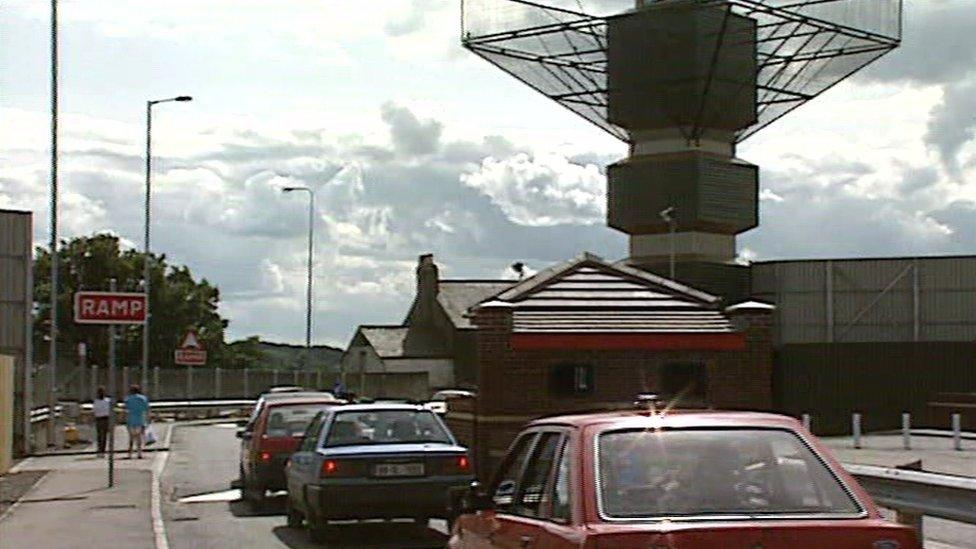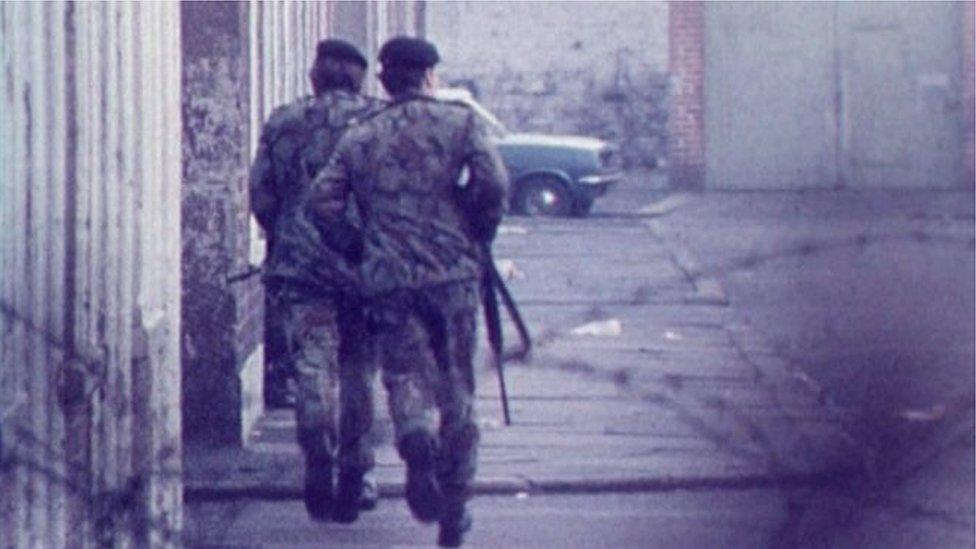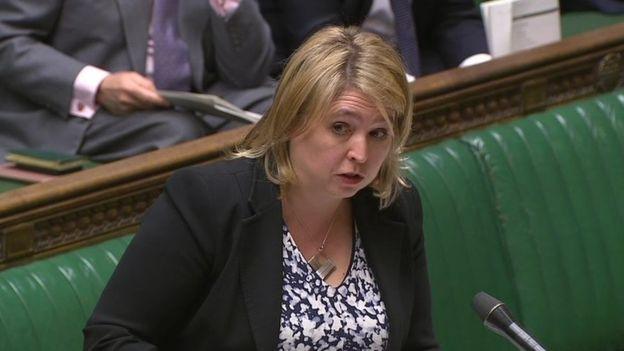Troubles legacy consultation responses to be published
- Published

The proposals have already been criticised by groups representing police and soldiers who served during the Troubles
Responses to a public consultation on government proposals to deal with the legacy of the Troubles are expected to be published on Friday.
More than 17,000 public responses were received when the consultation took place over five months in 2018.
The document is expected to be published by the Northern Ireland Office (NIO) but it has yet to comment.
On Thursday afternoon, the Stormont parties viewed the document on an embargoed basis.
It is a summary of responses to the proposed legacy plan, rather than a statement of government policy.
The public consultation process on the legacy of the Troubles was launched by the government in May 2018.
The legacy consultation document and draft bill outlines plans for:
An Historical Investigations Unit, which would have a caseload of about 1,700 Troubles-related deaths and aim to complete its work in five years
An Independent Commission on Information Retrieval, which would only look for information if asked to do so by families
An oral history archive, which would collect recorded memories and stories about the Troubles in one place
An implementation and reconciliation group with 11 members representing the UK and Irish governments, along with the five of the biggest political parties in Northern Ireland.
The consultation was due to end on 10 September 2018 but was extended by almost a month and closed to submissions on 5 October.

The legacy document outlines plans for dealing with Troubles-related deaths
As the process concluded, the proposals were criticised by the Police Federation, which represents thousands of rank and file police officers, who described the proposals as an attempt to equate paramilitaries with police officers.
Campaigners who support victims whose loved ones were killed by members of the security forces also criticised the proposals.
Speaking last May, Grainne Teggart, Amnesty International's campaign manager for Northern Ireland, said the proposals "neglect the rights to investigations of those tortured and injured in the conflict".
- Published30 April 2019

- Published11 May 2018
